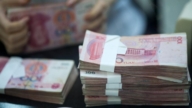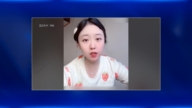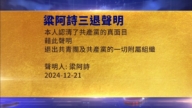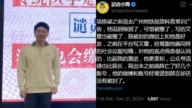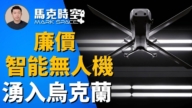【新唐人2013年10月09日讯】目前,媒体盛传,中共即将召开的三中全会,将进行号称与国际接轨的几项大改革,其中的养老金、遗产税、房产税等方面的改革,却被专家质疑,认为这些所谓的改革,只考虑政府如何收钱,没有考虑民众的承受能力,尤其是“遗产税”的设计,是劫持中产阶级财产,资助政府钱荒的表现。
最近盛传,中共当局将把养老金、遗产税、房产税等改革,写入中共三中全会,但备受民众和专家指责。
拿“遗产税”来说,中共这项税制的设计以80万元为起征点,超过1000万的遗产,征收50%遗产税,3000万的遗产需要缴纳1034万﹔无人继承的遗产则归国家所有。
因起征点过低,税率过高,专家质疑是在掠夺中产阶级。国内地产大亨任志强在微博上直呼:这个最狠,直接抢钱。
一些西方国家,“遗产税”的征收对像以少数高收入阶层人士为主,把“遗产税”做为缩短民众贫富差距、调节社会收入分配的利器。
美国南卡罗莱纳大学艾肯商学院教授谢田:“中共是在向中产阶级,普通老百姓来征收遗产税,按中国民众的收入来比,这个遗产税的起点非常低,所有这些都反映出同一个现象,中国政府现在缺钱,不管是从钱荒,到现在赤裸裸的跟中下层的人开始抢钱,都反映中国经济处在非常危急的状况。”
按“遗产税”80万为起征点,旅美经济学家何清涟撰文指出,中国的城市居民只要拥有房产,子女继承时就必需缴交“遗产税”,尤其是那些一直与父母居住的年轻人,有可能因无法缴纳遗产税而失去住房。因为,据了解,当前的中国城市居民,一套房产的价值,很容易就超过了80万元人民币。
美国的“遗产税”征收,在2011年,起征点改为500万美元,夫妇遗产如果是1000万美元,税率则降到35%。今年美国国会再将“遗产税征收起点”定为525万美元。
日本政府2003年的财税改革,主要内容之一就是“降低遗产税税率与征税档次”,加大退税优惠,使资产在世代间转移更加顺利。
近年来,加拿大、澳大利亚、新西兰、意大利等国家已相继“停征遗产税”。香港也在2006年取消了遗产税。
另外,在美国等金融、保险、信托业高度发达的国家里,父母可以把大笔财产捐赠给医院或某个福利基金会,接受捐赠的一方,必须以很高的利率定期支付利息,一直到捐赠者的后代死了,才能真正拥有这笔钱。这样一来,政府收不到任何“遗产税”。
大陆媒体《中新网》对500位办理遗嘱登记的老人,进行了随机问卷调查。结果显示,70%的受访老人认为,“遗产税”的起征点应在1000万元人民币以上。
比较其他发达国家的遗产税法,中共承担“遗产税”的主体并非巨富,而是部分中产阶层、和中小企业主、以及为保障下一代生活,终日辛勤工作、努力储蓄的人群。
何清涟的文章指出,中共当局对配偶等顺序的继承人,受遗赠的征税程度,远比很多发达国家苛刻,其他国家征遗产税时的“重复课税宽免制”,中共不肯“接轨”﹔民营小企业主的“经营性财产豁免遗产税”是国际惯例,中共也不“接轨”。
而“中国青年政治学院”副教授杨支柱指出,中国由于长期的计划生育和超低生育率,还会出现遗产100%归政府的现象。
中国青年政治学院副教授杨支柱:“每年的出生人口都在下降,实际上30%以上的人是没有后代的,如果连续两代这样(计划生育),那么50%以上的人是没有后代的,遗产不全是国家的了吗,那不是100%的(遗产)税率吗?”
杨支柱还指出,中共抢钱的办法还很多,社会抚养费也是一个很直接的办法。
采访编辑/刘惠 后制/钟元
China’s Inheritance Tax Aims at Middle-Class Families
Recently, media said that a few major reforms were written
into the agenda of an upcoming Third Plenary Session
of the Chinese Communist Party (CCP).
It includes pension, inheritance tax and housing tax.
Experts questioned whether the regime used the so-called
reforms to collect money but didn’t consider if the people could afford it or not.
Particularly the inheritance tax robs the middle-class
of property to balance the money shortage.
Rumors said that the pension, inheritance tax, and housing tax
would be discussed at the Third Plenary Session.
However, it was criticized by experts and the public.
Regarding the inheritance tax, it starts rather low at 800,000
yuan (USD $130,000) with rates ranging from 20 to 50%.
Under the proposal, a 10 million yuan ($1.6 million)
inheritance will pay a 50% rate, while 30 million will
cost 10.34 million yuan ($1.68 million).
Any unclaimed property will automatically go to the regime.
The cutoff is very low but the tax rate is very high.
Experts questioned whether the CCP is plundering
middle-class properties.
Chinese real estate tycoon Ren Zhiqiang posted on Weibo:
“This is most ruthless, it directly steals money.”
In some western countries, inheritance tax aims
at the minority – high income families.
It uses the tax to narrow down the wealth gap
and adjust the income distribution.
Xie Tian, Professor at Aiken Business School, University
of South Carolina: “The regime levies inheritance tax
from middle-class families and civilians.
From the view of Chinese people’s income,
the inheritance tax starts rather low.
From the recent banks’ shortage of money until now,
obvious theft of money from middle to lower class people
shows the regime is short of money
and is in a dangerous situation.”
US-based economist He Qinglian said that if people in urban
areas have property, once it is passed down to their children,
the children have to pay the inheritance tax.
Especially if young people who have lived with their parents
can’t afford the tax, they would possibly lose the house.
Sources said that according to the current market price,
it is easy to exceed 800,000 yuan ($130,000) value of a house.
In the US, the inheritance tax exclusion
started at 5 million in 2011.
For a couple, if they received an inheritance of USD
10 million, the tax rate was 35%.
In 2013, US Congress changed the exclusion to start
at $5.25 million.
In Japan, the government carried out fiscal reform in 2003,
the inheritance tax rate and exclusion amount were reduced.
The tax rebates were increased, so that asset transfer
to the next generation became more smooth.
In recent years, Canada, Australia, New Zealand,
Italy and other countries have successively
stopped collecting inheritance tax.
Hong Kong abolished the inheritance tax in 2006.
In addition, parents in countries with advanced finance,
insurance and trust industries, such as in the US,
can donate a large amount of property to hospitals
or a welfare foundation.
The successors must pay very high interest rates
on a regular basis until the donor’s posterity dies.
Only then can they truly receive the money.
In this way, the government can’t get any inheritance tax.
According to a survey on chinanews.com,
of 500 elderly who had registered wills,
70% of participants said that the inheritance tax exclusion
should start at least 10 million yuan ($1.6 million).
Compared with advanced countries’ inheritance tax law,
the CCP didn’t aim at very wealthy people, but at the middle
class, small-medium sized business owners as well
as working class families who worked hard to save money.
He Qinglian says that one can inherit from a spouse,
but the tax is much higher in China than in advanced countries.
The CCP refused to connect with other countries’ policies
of “double taxation relief” on inheritance tax.
Small sized private business assets being exempt from
inheritance tax is international practice,
but the Chinese regime didn’t take it.
Yang Zhizhu, Professor at China Youth University
of Political Science, says that China’s family planning
resulted in a lower birth rate, which gave the CCP
the opportunity to own 100% of unclaimed assets.
Yang Zhizhu: “The birth rate is declining every year,
and actually, 30% of the population has no descendants.
After two generations, 50% of the population
had no descendants.
The inheritance assets will certainly belong to the regime,
don’t they collect 100% inheritance tax on the assets?”
Yang also said that the CCP has many ways of stealing
people’s wealth, such as the huge penalty for an extra child –
“the social compensation fee” is a direct way
that the CCP robs people.



